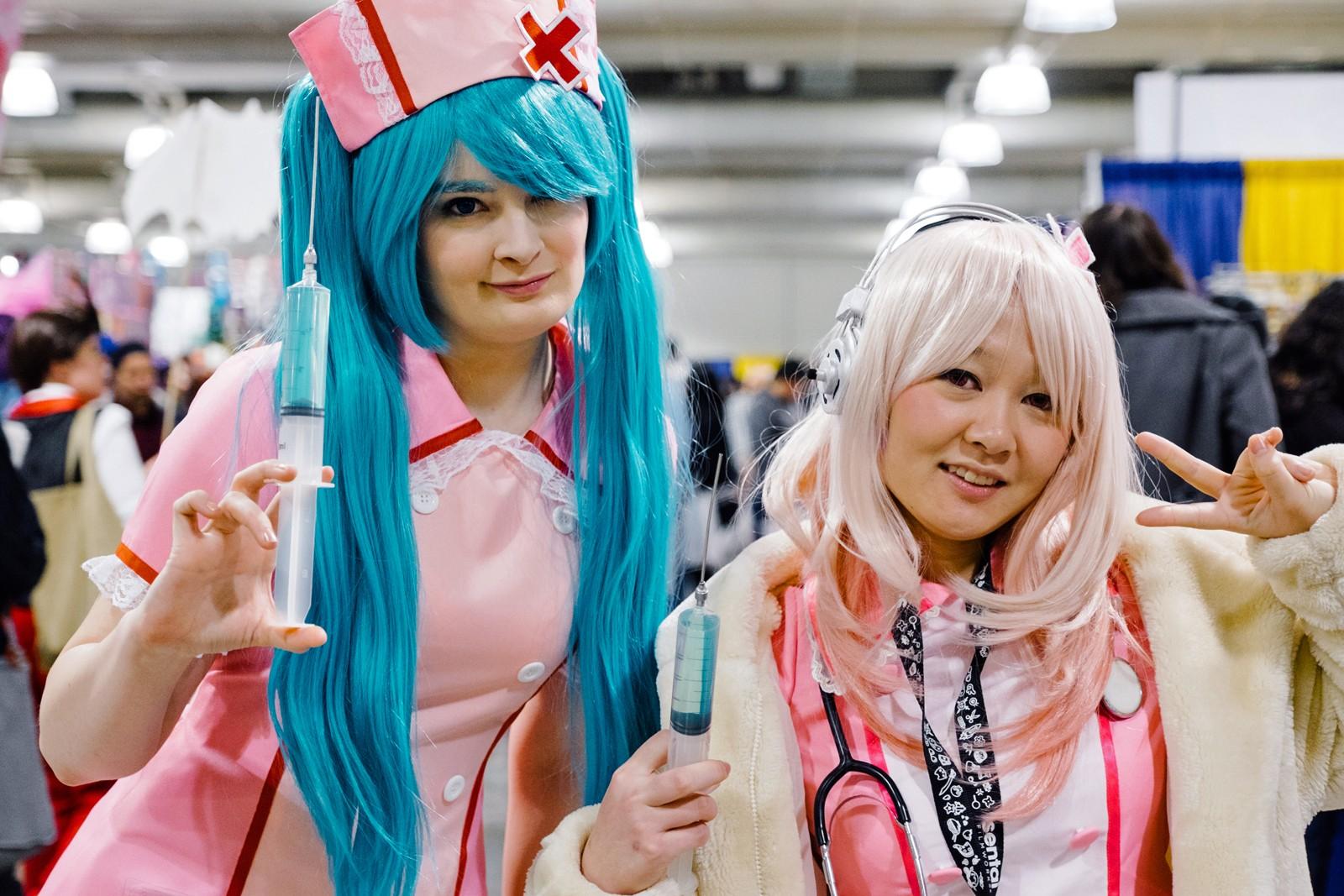[mediagrid cat=”29843″]
From “Pokémon” to “Dragon Ball Z,” Americans are no strangers to Japanese anime, and the fervor reached a high at Anime Boston this past weekend at the John B. Hynes Veterans Memorial Hynes Convention Center. Since the inaugural festivity began in 2003, the three-day convention has become a marketing hotspot for many dealers and brands that say they’ve seen increased sales correlating with the popularity of Japanese anime.
Hynes Convention Center and the downtown Sheraton and Hilton hotels were brimming with fans decked out as their most cherished characters. The well-dressed attendees had the chance to learn more about the industry they’ve come to love and chat with businesses.
Ruth Lampi, owner of The Five Wits in Shawnee, Oklahoma, has attended Anime Boston for the past 10 years as both an attendee and a dealer. Her inventory includes wigs, books, shirts and what’s known as marimos, a rare form of Japanese algae.
“I’ve always been into fandoms like ‘Star Wars’ or ‘Lord of the Rings,’ but then I started getting into these animations with serialized stories that evolved much more interestingly than other cartoons,” Lampi said. “If anything, Miyazaki’s work sealed the deal.”
Hayao Miyazaki is a Japanese film director, among other titles, who has become world renowned for his anime feature films.
The growing popularity of Japanese anime television series, films and manga, a style of Japanese graphic novels, overseas is one part of the Japanese government’s recent initiative, Cool Japan. According to TIME, Japan’s Ministry of Economy, Trade and Industry approved the $500 million, 20-year-long project in 2013 in order to export Japan’s creative industries abroad to help local businesses boost the country’s economy.
Additionally, The Japan Times reported that small and midsize firms represent creative industries like anime and manga and often lack the finances to run global operations.
TwyLite Fashion is an online business that sells Lolita-inspired clothing and accessories, which has become a subculture of Japanese street fashion that’s based on Victorian era clothing. Over the course of 15 years, the brand has catered to a particularly loyal niche of anime fans.
Anthony Sparks, of Tasty Peach Studios, a boutique in Mishawaka, Indiana, has also seen a rise in sales for the Kawaii-inspired and Japanese minimalist brand at conventions throughout the country.
“We have blown up,” Sparks said. “This is our third year at Anime Boston, and sales have increased, making this event one of our most successful ones of the year. We’ve noticed that as certain shows or trends get bigger in the anime world, we get more sales when we reflect them in our products.”
Lampi also takes into account what’s going on in the anime world based on the requests of her customers.
“For a while, our bread and butter were ‘Hosta’ wigs, which was nice because it was an extremely popular web comic and everyone wanted blonde or black hair,” Lampi said. “That trend is starting to ease off while ‘Other Tail’ is growing, which involves a broader range of colored wigs. We try to keep current with what’s going on because we want to please the customer, but we’re all cosplayers and anime nerds at heart.”
For Kyohei Ishiguro, the anime director of the popular series “Your Lie in April,” Anime Boston is the first American convention he has ever attended. Yet in the modern digital age, he said that anime can easily cross barriers and borders to reach a larger audience more rapidly.
“[Americans] comprehended it [the anime film] in the same way that the original Japanese audience does,” Ishiguro said. “They felt the same emotions at the very same moments that the Japanese audience originally did. It really made me realize that it doesn’t matter what your race or where you are geographically, there’s a common theme.”



















































































































